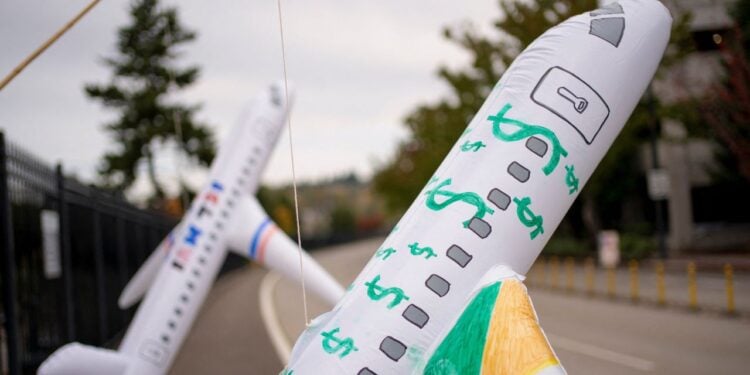Boeing has announced plans to reduce its workforce by 10%, equating to approximately 17,000 jobs, following significant production disruptions and financial setbacks. This decision coincides with a strike involving 33,000 factory workers, who have been demanding higher wages since mid-September, according to Proactive Investors.
The aircraft manufacturer, already grappling with $60 billion in debt, anticipates an additional $5 billion in losses for the third quarter of 2024. CEO Kelly Ortberg informed employees that the company would realign its workforce to address current financial challenges.
“We reset our workforce levels to align with our financial reality and to a more focused set of priorities,” Ortberg stated, highlighting that the layoffs will affect executives, managers, and employees alike.
Additionally, Boeing has delayed the first deliveries of its 777X jet by a year, now expected in 2026.
Following the announcement, Boeing’s shares dropped by 2.12% in after-market trading. Ratings agency S&P has estimated that the ongoing strike is costing the company around $1 billion per month, raising concerns about a potential downgrade of Boeing’s investment-grade credit rating.
Analysts predict that Boeing’s upcoming quarterly earnings report, set to be released on October 23, will show revenue of $17.8 billion and a loss per share of $9.97. Equity manager Thomas Hayes noted that the layoffs may pressure striking workers to reach an agreement, suggesting the possibility of a resolution within a week.
“Striking workers who temporarily do not have a pay cheque do not want to become unemployed workers who permanently do not have a pay cheque,” Hayes remarked.
In addition to these challenges, Boeing is under scrutiny for safety practices, particularly after a recent panel blowout during a mid-air flight, which has led regulators to impose production restrictions.
















